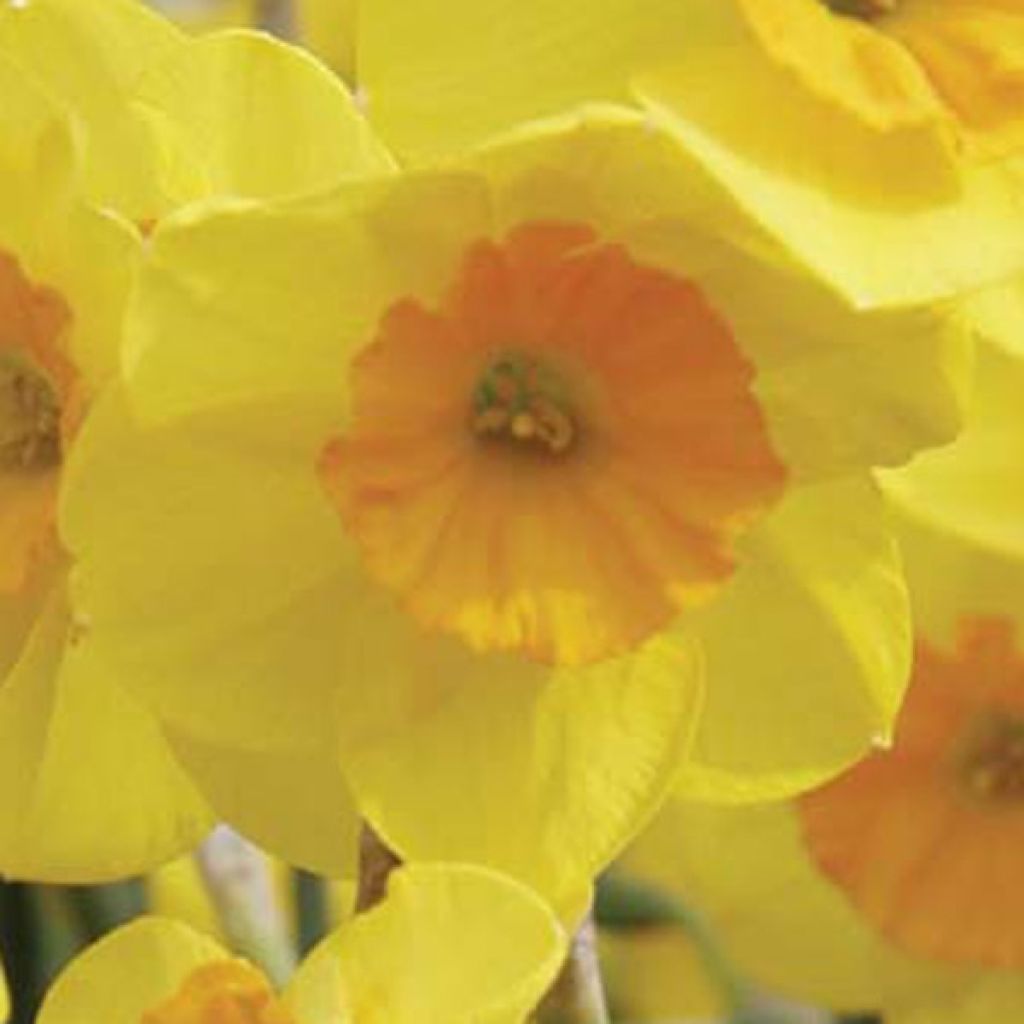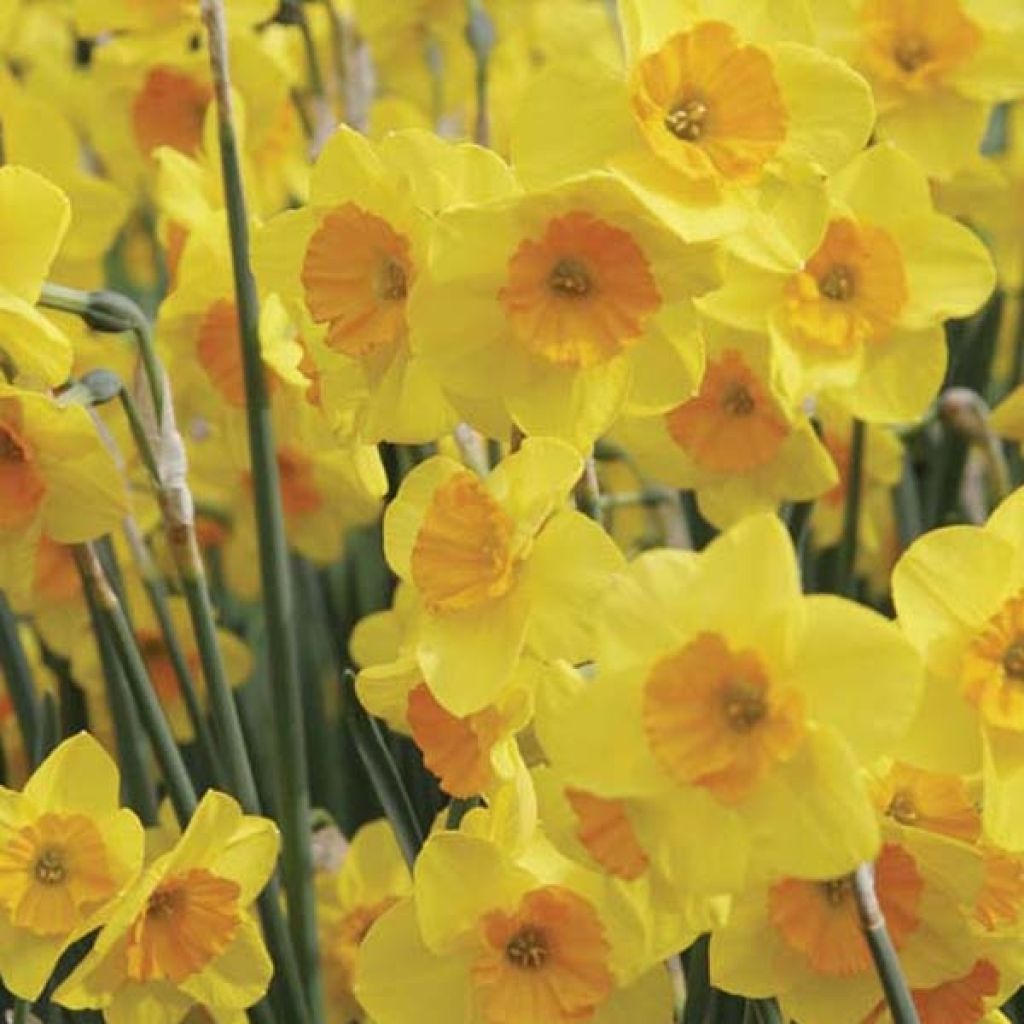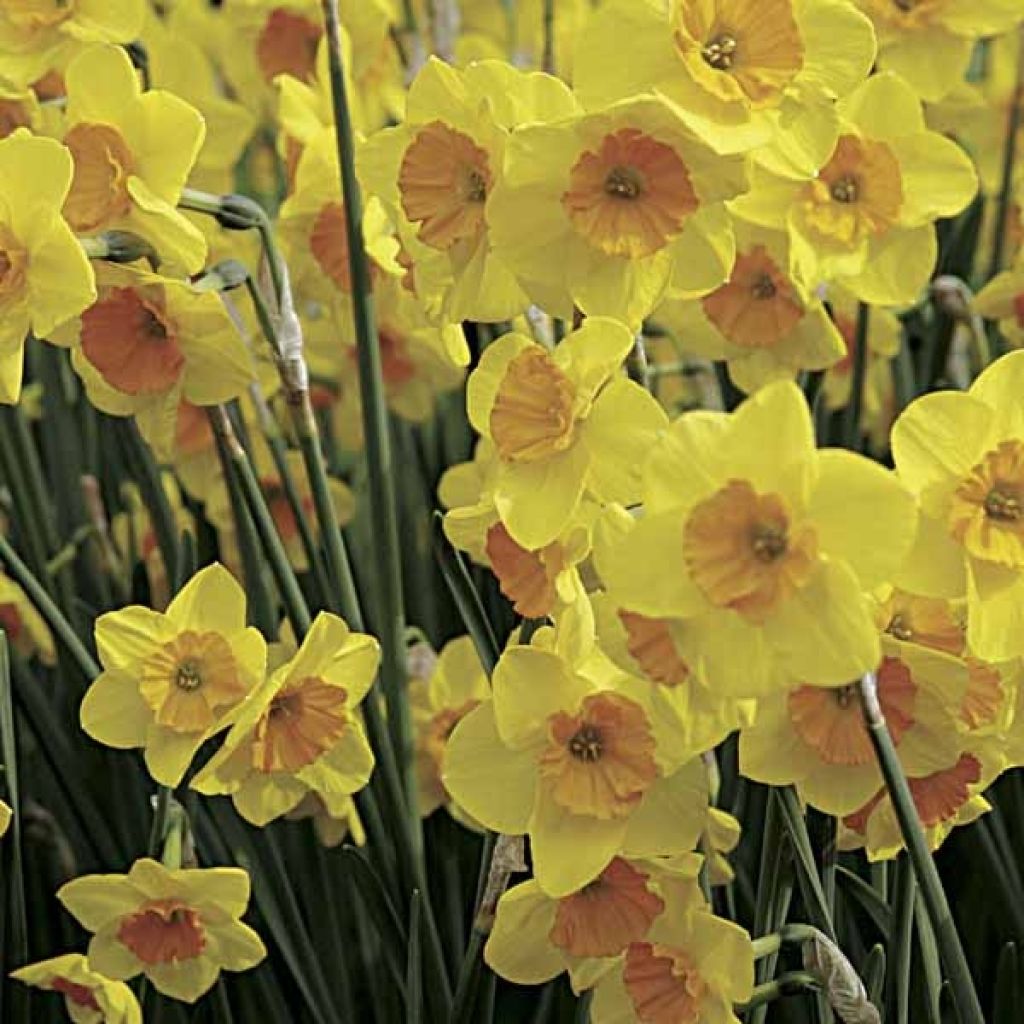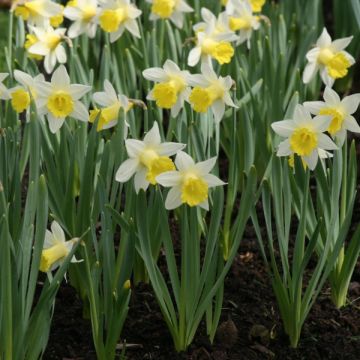

Narcissus jonquilla Suzy


Narcissus jonquilla Suzy


Narcissus jonquilla Suzy
Narcissus jonquilla Suzy
Narcissus jonquilla Suzy
Jonquil, Rush Daffodil
They bloomed beautifully.
Monique , 24/03/2024
Special offer!
Receive a €20 voucher for any order over €90 (excluding delivery costs, credit notes, and plastic-free options)!
1- Add your favorite plants to your cart.
2- Once you have reached €90, confirm your order (you can even choose the delivery date!).
3- As soon as your order is shipped, you will receive an email containing your voucher code, valid for 3 months (90 days).
Your voucher is unique and can only be used once, for any order with a minimum value of €20, excluding delivery costs.
Can be combined with other current offers, non-divisible and non-refundable.
This plant carries a 6 months recovery warranty
More information
We guarantee the quality of our plants for a full growing cycle, and will replace at our expense any plant that fails to recover under normal climatic and planting conditions.


Would this plant suit my garden?
Set up your Plantfit profile →
Description
Narcissus jonquilla 'Suzy' is an ancient variety, still loved for its bright and fragrant flowers. It is a small but sturdy plant, similar to the true jonquil from southern Europe, producing several highly fragrant flowers on each stem in April-May. Their corolla of bright yellow petals surrounds a small, shallow, wavy-edged, bright orange coronule. Unlike many varieties, this one is well-suited to climates which are hot and dry in summer, where it naturalises easily in sunny or semi-shady borders and rocky areas. Consider planting a few extra in pots to fully enjoy its fragrance.
Narcissus jonquilla 'Suzy', introduced in 1954 in England, belongs to the amaryllidaceae family and division 7 of narcissus commonly known as 'jonquils'. The Narcissus genus includes about 50 species mainly found in the western Mediterranean, but also in Africa and Asia. 'Suzy' is a variety derived from N. jonquilla, a species with very narrow foliage like that of rushes (hence its name jonquilla), native to southwest Europe (Spain, Portugal) and North Africa. 'Suzy' is distinguished by its bi-coloured yellow and orange flowers which are 5 to 6 cm (2in) wide. The plant produces a very sturdy stem 30 to 40 cm (12 to 16in) high when flowering. It blooms rather late, from April onwards, each stem bearing 2 to 6 pendulous flowers grouped in pairs. The foliage is deciduous and linear and disappears in summer to reappear at the end of winter.
There is such a wide choice of narcissus varieties that you can enjoy them for three months in spring without getting bored for a single moment. They all easily naturalise and combine yellow and white, and they often emit sweet fragrances. So many reasons to grow them in large clumps (at least 20 bulbs) for a mass effect. Plant 'Suzy' narcissus with scillas and anemones blanda in natural beds and accompany them with botanical tulips, forget-me-nots and small grasses like Stipa. A group of 'Suzy' Narcissus in a pot placed near the house or even in a slightly heated room will diffuse an exceptional fragrance. It is perfect for cut flowers.
Jonquil or Narcissus? Botanically speaking, jonquils are part of the narcissus family. They have flowers grouped in pairs or more, and their coronule forms a bell-shaped trumpet that is longer than the corolla is wide. The botanical species have the charm of wild plants and thrive in rocky areas: N. bulbocodium, N. canaliculatus, N. juncifolius, N. pseudonarcissus, and the simple wood jonquil are among the prettiest. For bouquets, we advise you not to mix narcissus with other flowers, especially tulips, as the stems of narcissus contain a substance that quickly wilts other flowers. You can mitigate this detrimental effect on other types of flowers by dipping the ends of the narcissus stems in hot water for 1 to 2 minutes.
Report an error about the product description
Plant habit
Flowering
Foliage
Botanical data
Narcissus
jonquilla
Suzy
Amaryllidaceae
Jonquil, Rush Daffodil
Cultivar or hybrid
Other Single Daffodils
View all →Planting and care
Narcissi bloom from March to May and come back every year. They are very easy to grow and thrive both in the shade of a wood and a sunny flowerbed. Plant them 10 cm (4in) deep and 10 cm (4in) apart, in minimum sets of 5 bulbs, in patches of uniform or mixed colours. To plant them in the lawn: lift a patch of turf, dig and loosen the soil to at least 20 cm (8in) (the depth of a spade), place your bulbs, cover with soil and lay the turf back. Choose a spot where you won't mow, as you must let the narcissus leaves wither before cutting them. This is when the bulb regenerates and prepares the flowers for the following year. However, remember to remove the flowers as soon as they fade to prevent seed formation which would unnecessarily deplete the bulb.
Planting period
Intended location
Care
-
, onOrder confirmed
Reply from on Promesse de fleurs
Haven't found what you were looking for?
Hardiness is the lowest winter temperature a plant can endure without suffering serious damage or even dying. However, hardiness is affected by location (a sheltered area, such as a patio), protection (winter cover) and soil type (hardiness is improved by well-drained soil).

Photo Sharing Terms & Conditions
In order to encourage gardeners to interact and share their experiences, Promesse de fleurs offers various media enabling content to be uploaded onto its Site - in particular via the ‘Photo sharing’ module.
The User agrees to refrain from:
- Posting any content that is illegal, prejudicial, insulting, racist, inciteful to hatred, revisionist, contrary to public decency, that infringes on privacy or on the privacy rights of third parties, in particular the publicity rights of persons and goods, intellectual property rights, or the right to privacy.
- Submitting content on behalf of a third party;
- Impersonate the identity of a third party and/or publish any personal information about a third party;
In general, the User undertakes to refrain from any unethical behaviour.
All Content (in particular text, comments, files, images, photos, videos, creative works, etc.), which may be subject to property or intellectual property rights, image or other private rights, shall remain the property of the User, subject to the limited rights granted by the terms of the licence granted by Promesse de fleurs as stated below. Users are at liberty to publish or not to publish such Content on the Site, notably via the ‘Photo Sharing’ facility, and accept that this Content shall be made public and freely accessible, notably on the Internet.
Users further acknowledge, undertake to have ,and guarantee that they hold all necessary rights and permissions to publish such material on the Site, in particular with regard to the legislation in force pertaining to any privacy, property, intellectual property, image, or contractual rights, or rights of any other nature. By publishing such Content on the Site, Users acknowledge accepting full liability as publishers of the Content within the meaning of the law, and grant Promesse de fleurs, free of charge, an inclusive, worldwide licence for the said Content for the entire duration of its publication, including all reproduction, representation, up/downloading, displaying, performing, transmission, and storage rights.
Users also grant permission for their name to be linked to the Content and accept that this link may not always be made available.
By engaging in posting material, Users consent to their Content becoming automatically accessible on the Internet, in particular on other sites and/or blogs and/or web pages of the Promesse de fleurs site, including in particular social pages and the Promesse de fleurs catalogue.
Users may secure the removal of entrusted content free of charge by issuing a simple request via our contact form.
The flowering period indicated on our website applies to countries and regions located in USDA zone 8 (France, the United Kingdom, Ireland, the Netherlands, etc.)
It will vary according to where you live:
- In zones 9 to 10 (Italy, Spain, Greece, etc.), flowering will occur about 2 to 4 weeks earlier.
- In zones 6 to 7 (Germany, Poland, Slovenia, and lower mountainous regions), flowering will be delayed by 2 to 3 weeks.
- In zone 5 (Central Europe, Scandinavia), blooming will be delayed by 3 to 5 weeks.
In temperate climates, pruning of spring-flowering shrubs (forsythia, spireas, etc.) should be done just after flowering.
Pruning of summer-flowering shrubs (Indian Lilac, Perovskia, etc.) can be done in winter or spring.
In cold regions as well as with frost-sensitive plants, avoid pruning too early when severe frosts may still occur.
The planting period indicated on our website applies to countries and regions located in USDA zone 8 (France, United Kingdom, Ireland, Netherlands).
It will vary according to where you live:
- In Mediterranean zones (Marseille, Madrid, Milan, etc.), autumn and winter are the best planting periods.
- In continental zones (Strasbourg, Munich, Vienna, etc.), delay planting by 2 to 3 weeks in spring and bring it forward by 2 to 4 weeks in autumn.
- In mountainous regions (the Alps, Pyrenees, Carpathians, etc.), it is best to plant in late spring (May-June) or late summer (August-September).
The harvesting period indicated on our website applies to countries and regions in USDA zone 8 (France, England, Ireland, the Netherlands).
In colder areas (Scandinavia, Poland, Austria...) fruit and vegetable harvests are likely to be delayed by 3-4 weeks.
In warmer areas (Italy, Spain, Greece, etc.), harvesting will probably take place earlier, depending on weather conditions.
The sowing periods indicated on our website apply to countries and regions within USDA Zone 8 (France, UK, Ireland, Netherlands).
In colder areas (Scandinavia, Poland, Austria...), delay any outdoor sowing by 3-4 weeks, or sow under glass.
In warmer climes (Italy, Spain, Greece, etc.), bring outdoor sowing forward by a few weeks.































